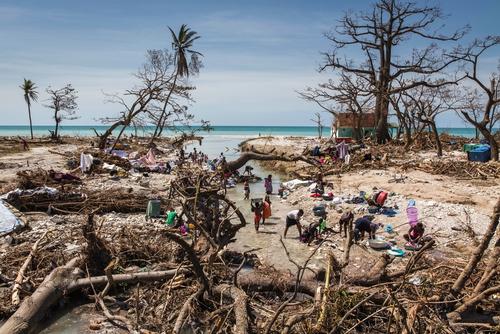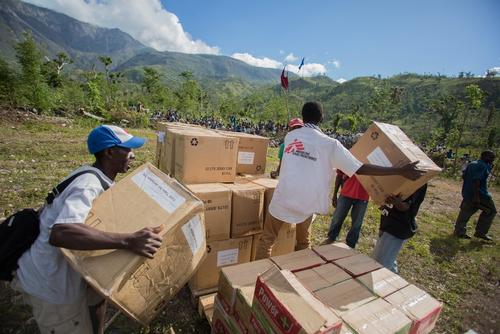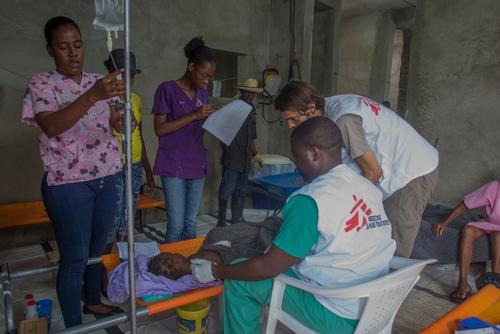Many communities along the coast in southern Haiti as well as inland have been very badly affected by the hurricane that hit the country on 4 October. The regions most affected are Grand Anse, Nippes and Sud. Sud was hit hardest, but Grand Anse and Nippes sustained severe damage and destruction.
According to evaluation by national authorities, 175,000 people have been displaced, over two million people are affected, and 1.4 million people are in need of aid. 546 people are reported dead, but the real number is very likely higher. Medical structures, already under-funded and under-resourced, were not spared: the World Health Organization reports that 23 health centres have been damaged or partially destroyed.
175,000
175,
1.4 M
1.4M
546
546
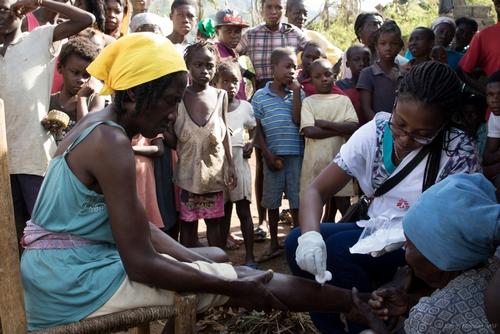
Water and sanitation activities are a major component of MSF’s response. We are focusing on access to clean water – distributing chlorine tablets, cleaning or repairing water sources, installing water bladders, cleaning and disinfecting areas, and assessing water quality. Ten water and sanitation specialists are working on the projects. In Sud, MSF has already distributed over 500,000 chlorine tablets to disinfect water, and will also soon begin distributing them in Nippes and Grand Anse.
Cholera infections, which always peak during the rainy season (from October to December/January), have risen in affected areas. If clean water and shelter are not provided soon, cases are likely to rise further. Surveillance data and notification are still an issue in affected regions. Expansion of the outbreak towards other regions is a concern, and vaccination in these areas at risk should be prioritized, as the peak of infection may well have passed in the most affected areas once vaccinations begin. Moreover, with destroyed homes and torrential rains, there is growing concern about other epidemics such as Dengue, malaria and pneumonia.
According to Plan American Health Organization epidemiological surveillance in the week up to 18 October, there were 167 suspect cases of cholera reported in Grand Anse, 464 in Sud, 73 in Artibonite (north of Port au Prince) and one in Nippes. We use these numbers with caution given that the surveillance and notification system was affected in the aftermath of the hurricane. However, we must certainly remain vigilant about new cases flaring up. Cholera prevalence is higher in regions most affected by the hurricane, and controlling transmission in these areas should be prioritized. MSF believes that cholera vaccination provides an opportunity to curb transmission in areas less affected by the hurricane.
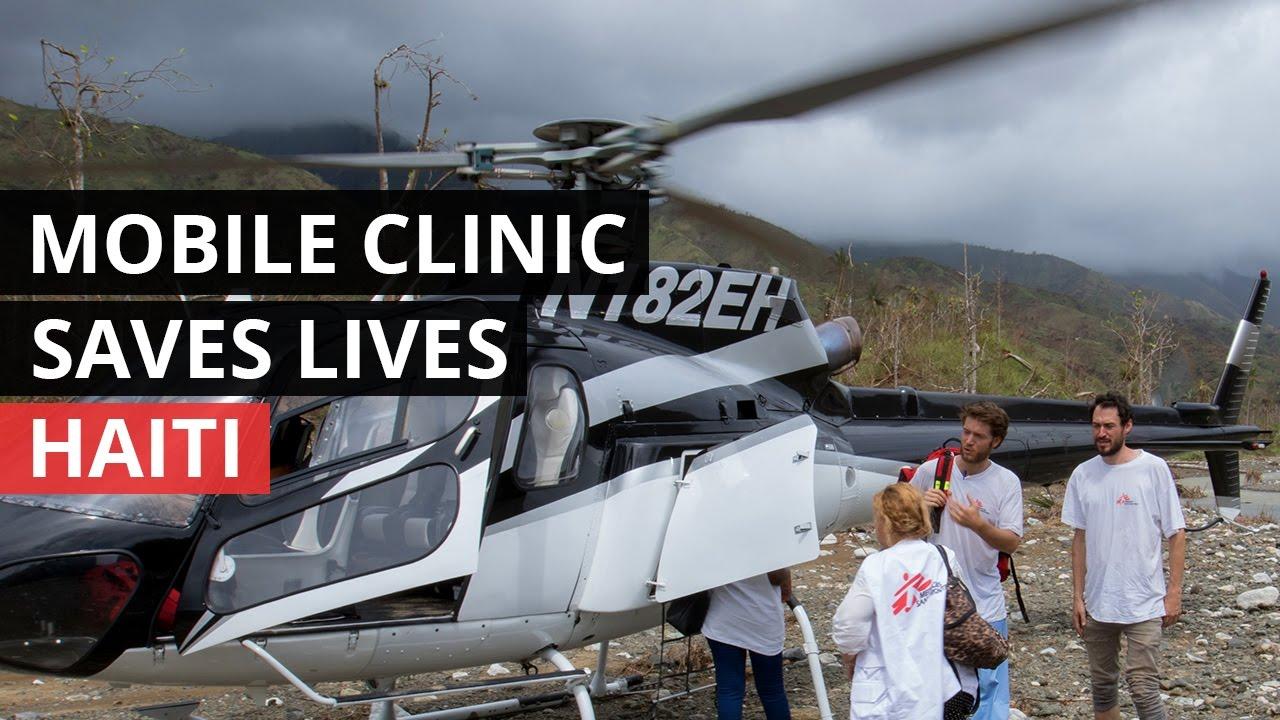
HAITI | Saving Lives with mobile helicopter clinic
MSF has been present in Haiti for over 19 years providing free healthcare for the thousands of people who cannot afford the limited healthcare available. We currently runs six projects in the Port-au-Prince metropolitan area, including the Drouillard hospital for severe burns, the Tabarre traumatology hospital, the Martissant emergency centre, the Centre de Reference des Urgences en Obstétrique (CRUO), and the Pran Men’m clinic for survivors of sexual and gender-based violence. MSF also supports the Diquini centre for cholera patients.



